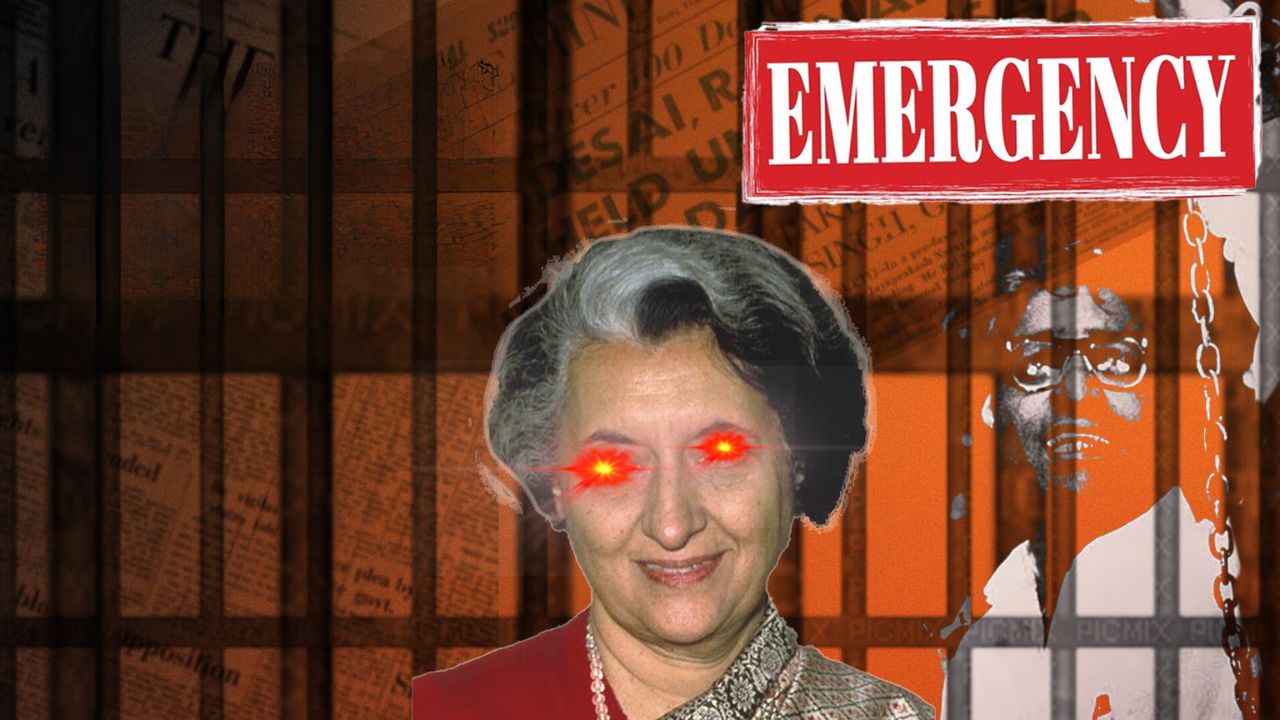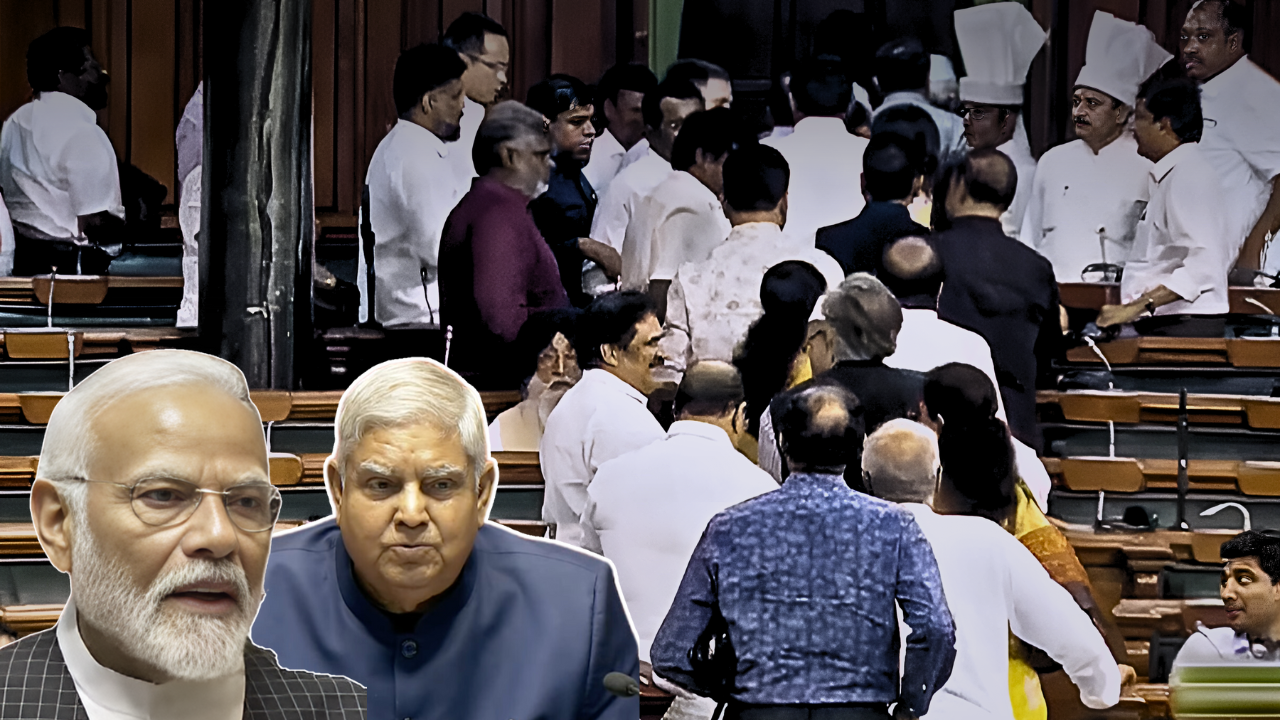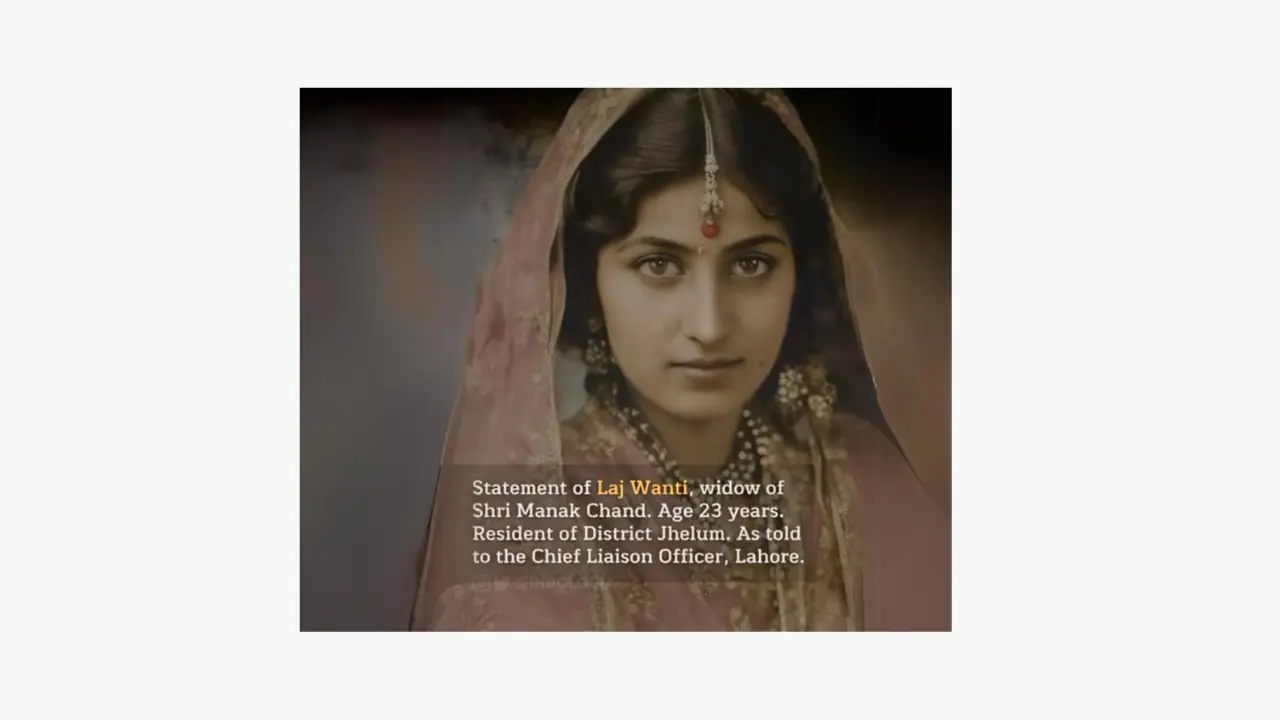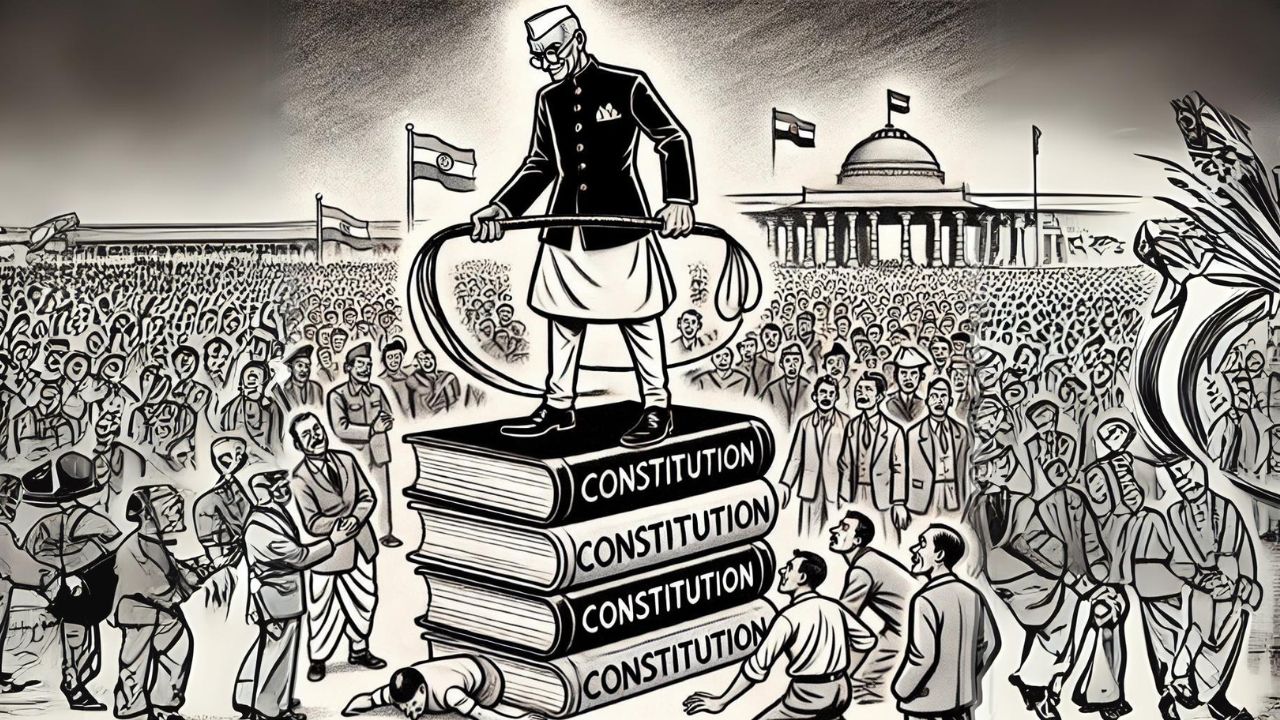The Emergency period in India, from June 25, 1975, to March 21, 1977, remains one of the most controversial and repressive times in the country’s democratic history. Prime Minister Indira Gandhi’s government declared a state of emergency, suspending civil liberties and imposing strict censorship on the press. During this time, numerous journalists faced arrest, harassment, and censorship. Despite these challenges, many stood firm, displaying remarkable courage and resilience. This article delves into the lives and careers of some of these journalists, highlighting their contributions and the challenges they faced.
Ramnath Goenka: The Indomitable Spirit
Ramnath Goenka, born on April 3, 1904, in Darbhanga, Bihar, was a towering figure in Indian journalism. He established The Indian Express in 1932 and built it into one of India’s most respected newspapers, renowned for its fearless journalism and commitment to exposing corruption and injustice. When Prime Minister Indira Gandhi declared the Emergency, civil liberties were curtailed, and press censorship was imposed. The government used the Maintenance of Internal Security Act (MISA) to arrest dissenters and suppress opposition.
Goenka, known for his critical stance against the government, became a prime target. Despite the arrests and harassment, The Indian Express continued to find ways to report on government excesses and maintain its journalistic integrity. Goenka’s resistance inspired other journalists and media houses to uphold their duty to inform the public, despite the risks involved. After the Emergency was lifted in 1977, Goenka and The Indian Express played a pivotal role in restoring press freedom in India. His legacy as a stalwart of the free press continues to influence Indian journalism.
Kuldip Nayar: A Voice of Resistance
Kuldip Nayar, one of the most respected names in Indian journalism, was the editor of The Statesman during the Emergency. Known for his fearless reporting and critical stance against the government, Nayar was arrested and imprisoned for his outspoken criticism of Indira Gandhi’s regime. Despite the severe censorship, he continued to fight for press freedom and later documented his experiences in his book, “Emergency Retold.” His work during this period solidified his reputation as a staunch defender of democratic values and press freedom.
Arun Shourie: The Investigative Journalist
Arun Shourie faced significant challenges during the Emergency. Although not imprisoned, he played a crucial role in exposing the excesses of the government. Shourie worked with The Indian Express, which became a beacon of resistance under the leadership of Ramnath Goenka. Shourie’s investigative journalism brought to light many instances of government abuse and corruption, earning him both national and international acclaim. His fearless reporting laid the foundation for his later work as a crusading journalist and author.
Nikhil Chakravartty: Maintaining Editorial Independence
Nikhil Chakravartty was the editor of Mainstream, a weekly political magazine known for its independent and analytical approach to journalism. Although he was not jailed, Chakravartty’s publication faced severe censorship and threats from the government. His commitment to maintaining editorial independence during such a repressive period was a testament to his dedication to journalistic integrity. Chakravartty continued to influence Indian journalism through his writings and editorial work long after the Emergency ended.
K.A. Abbas: The Multi-faceted Writer
Khwaja Ahmad Abbas, commonly known as K.A. Abbas, was a prominent journalist, novelist, and filmmaker. He was detained during the Emergency for his outspoken views against the government’s actions. Abbas’s work spanned various mediums, but his commitment to social justice and democratic principles remained a constant. His detention highlighted the extent to which the government was willing to go to silence dissenting voices, but it also underscored Abbas’s unwavering dedication to his craft and his principles.
B.G. Verghese: Champion of Press Freedom
B.G. Verghese was the editor of The Hindustan Times before the Emergency and later of The Indian Express. Known for his strong editorial stance against the Emergency, Verghese faced considerable pressure and censorship. He was removed from his position at The Hindustan Times due to his critical editorials and later joined The Indian Express, which under Ramnath Goenka’s leadership, became a powerful voice against the Emergency. Verghese’s writings and editorial leadership during this period are remembered for their courage and integrity. His books and articles continue to serve as important references on the period.
L.K. Advani: From Journalist to Politician
Lal Krishna Advani, who later became a prominent political leader, was also a journalist during the Emergency. He was the editor of the RSS mouthpiece Organiser and was imprisoned for his opposition to the Emergency. Advani’s detention marked a significant moment in his career, transitioning from journalism to active politics. His experiences during the Emergency played a crucial role in shaping his political ideology and his later contributions to Indian politics.
Kuldeep Kumar: The Persistent Reporter
Kuldeep Kumar, an investigative journalist known for his critical reporting, faced significant harassment and threats from the government during the Emergency. While he was not imprisoned, he was constantly under surveillance and pressure to conform to censorship regulations. Kumar’s dedication to uncovering the truth despite the oppressive environment made him a respected figure in Indian journalism.
Ajit Bhattacharjea: Upholding Journalistic Integrity
Ajit Bhattacharjea was the editor of The Hindustan Times, one of India’s major daily newspapers, during the Emergency. Known for his strong editorial stance against the government’s excesses, Bhattacharjea faced severe censorship and government pressure. He was not imprisoned but his journalistic work was heavily scrutinized and hampered. Bhattacharjea continued to advocate for press freedom and democratic values throughout his career.
Subramanian Swamy: Politician and Academic Turned Journalist
Subramanian Swamy, now a well-known politician, was also a prominent academic and journalist during the Emergency. Swamy was an outspoken critic of the government’s policies and faced arrest warrants during the Emergency. He managed to escape arrest by leaving the country, but his contributions as a journalist and critic were notable. His writings during this period were instrumental in documenting the abuses of the Emergency.
Dr. Rafiq Zakaria: Scholar and Journalist
Dr. Rafiq Zakaria, an eminent scholar and journalist, was detained during the Emergency due to his outspoken views against the government’s policies. Zakaria’s arrest was part of the broader crackdown on intellectuals and journalists who opposed the regime. His work during and after the Emergency continued to reflect his commitment to democratic principles and social justice.
A.B. Vajpayee: From Journalism to Politics
Atal Bihari Vajpayee, who later became the Prime Minister of India, started his career as a journalist. During the Emergency, Vajpayee was a prominent opposition leader and was arrested and imprisoned for his vocal criticism of the government’s actions. His experiences during the Emergency played a significant role in shaping his political career and his staunch advocacy for democratic values and press freedom.
Nikhil Wagle: Emerging Voice of Resistance
Nikhil Wagle, a young journalist at the time, emerged as a vocal critic of the Emergency. Wagle faced threats and harassment from the government but continued to write and report critically about the government’s actions. His fearless journalism during this period set the stage for his later career as a respected journalist and editor.
Arun Jaitley: Law Student and Political Activist
Arun Jaitley, who later became a prominent politician and served as India’s Finance Minister, was a law student and active journalist during the Emergency. Jaitley was arrested for his involvement in student protests against the Emergency. His writings and speeches during this period were critical in mobilizing opposition to the government’s authoritarian measures.
These journalists and activists demonstrated remarkable courage and resilience in the face of an oppressive regime. Their contributions during the Emergency period played a crucial role in preserving democratic values and press freedom in India. Their legacy continues to inspire future generations of journalists and advocates for democracy.





